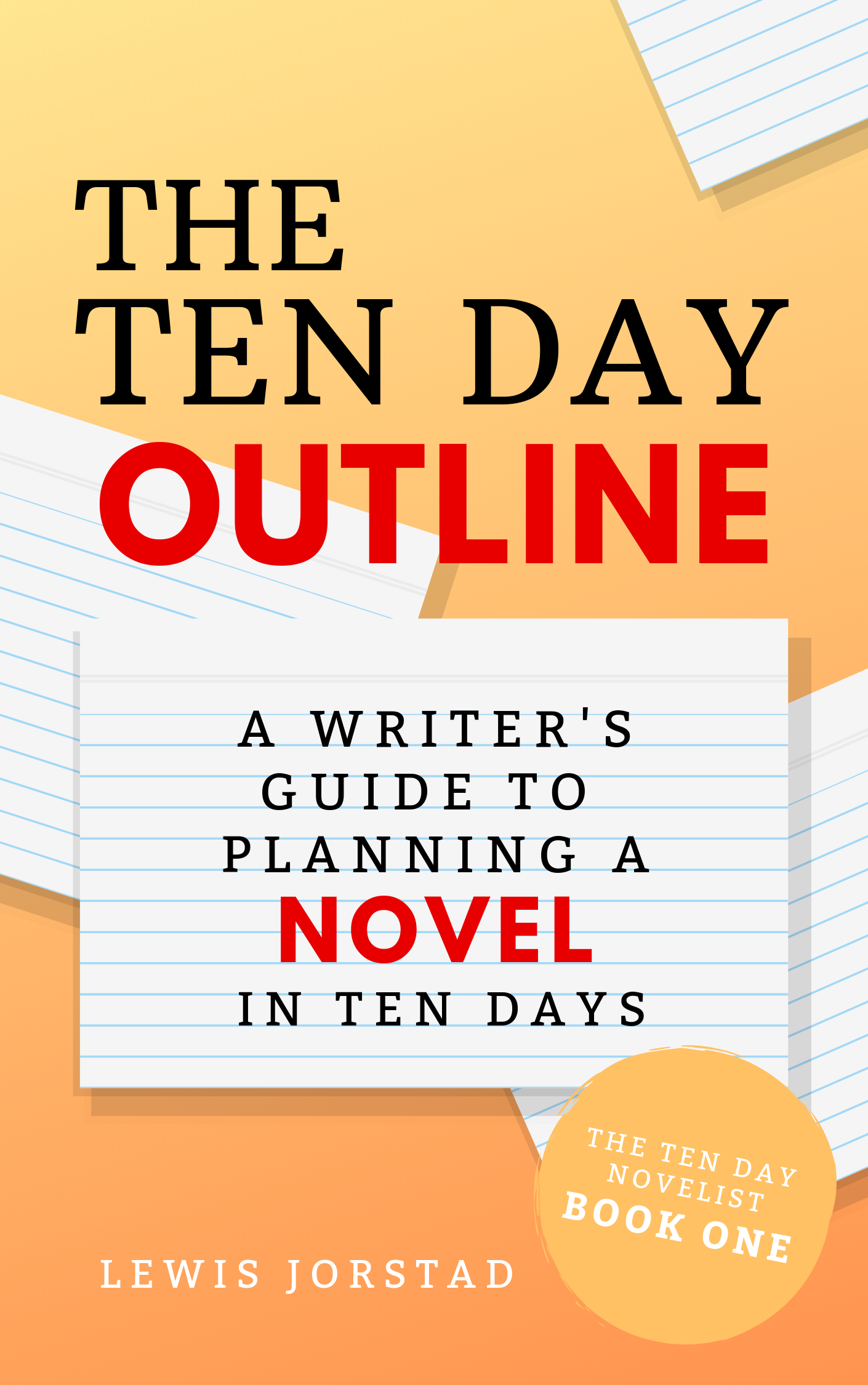7 Ways To Set (Insanely Successful) Writing Goals
Good writing goals don’t always come easy…
We all set goals with the best of intentions. But if you’ve ever gotten caught up in the New Year’s resolution hype, you’ll know it’s just as easy for those goals to fall to the side. Writing goals are no different, meaning sticking to our goals can often be as difficult as writing itself.
Fortunately, there are ways to choose the right writing goals, ones that set you up for success rather than disappointment. So, let’s take a tour through all the ways you can set better writing goals—from the SMART goal framework to mercy days and more!
Why You Need Better Writing Goals
Contents
 Most writers sit down at their desks with some kind of writing goal in mind—and that’s a good thing!
Most writers sit down at their desks with some kind of writing goal in mind—and that’s a good thing!
Setting goals comes with a ton of important benefits and is a big part of succeeding as a writer. Perhaps you hope to finish your novel by the end of the year, outline your new fantasy trilogy, or find a critique partner to help you as you write. Or, maybe you’re a bit more specific, and plan to revise your second draft in the next six months or send your manuscript to an as-yet-determined editor.
However, all of these goals have a problem—they’re not achievable.
On the surface they might look fine, but when you actually try to meet them, you’ll quickly realize they’re just too big to be successful…
- How do you finish your novel in twelve months?
- How do you actually revise a second draft?
- How do you find a critique partner?
This is why setting the right writing goal is almost as important as setting goals at all.
Good writing goals keep you accountable, but they also give you milestones to work towards, ways to measure progress, and the confidence that you’re on track. They’re tailored to you, and they’re specific enough that you always know what’s next. After all, work expands to fill the time allotted to it. Without some goal in mind, you’ll tinker with your novel forever.
So, how do you set better goals?
How to Set SMART Writing Goals
SMART goals have their origins in the business and productivity spaces, but they’re a useful tool for writers too. SMART is an acronym that stands for:
Specific: What specific outcome are you trying to achieve? What actions or steps will you take to achieve it?
Measurable: How will you track your progress? What numbers, dates, or milestones can you focus on?
Attainable: Is this goal realistic for you to achieve? Does it respect your existing commitments and writing speed?
Relevant: Will this goal move you closer to your desired outcome? Will it help you achieve your long-term goals?
Timely: What is the timeframe for accomplishing this goal? When do you want to achieve it?
Of course, even within the realm of SMART goals, there are many ways to approach this.
On the one hand, you might focus on a project-based goal where you measure things like word count, chapters written, et cetera. Or, you could decide on a time-based goal, where you focus on how long and when you want to write each day or week.
Both options have pros and cons:
Project-Based Goals: Great for tracking measurable, steady progress over time, especially if you’re confident in how much you can write each month or week. However, these can quickly become overwhelming if you fall behind or overestimate your writing speed.
Time-Based Goals: Best for those with busy schedules or who can’t commit to writing a certain number of words, but can squeeze in fifteen or thirty minutes throughout the day. Just don’t get distracted and waste your limited writing time.
Regardless of which type of writing goal is best for you, the principles of SMART goals still apply. So, here’s an example of two different SMART writing goals, and one “not-so-smart” goal for comparison:
Project-Based Goal: My goal is to write 1,500 words of my first draft each day of November, aiming for 50,000 words total by December 1st.
Time-Based Goal: My goal is to work on my first draft (specifically on writing new words) for two hours every Saturday, plus fifteen minutes every day during the week.
Not-So-Smart Goal: My goal is to write a novel this year.
With this in mind, take a moment to write down your own writing goal—keeping these SMART principles in mind! Once you’ve chosen your goal, it’s time to talk about seven steps you can take to actually achieve it. 🙂
7 Tricks for Meeting Your Writing Goals
Create a Routine:
One of the trickiest parts of meeting your writing goals, is actually incorporating writing into your normal life. Let’s be real—we’re all way too busy! Between work, school, family, and occasionally sleep, it’s hard to make time for writing, and that stress and overwhelm means the time we do have often isn’t very creative. However, it is still possible to make writing a priority, even in small ways.
My recommendation is to develop a routine.
If you create a clear plan for when and where you’ll sit down to write, it’ll be that much easier to carve time out of your day to do so. You’ll have removed that barrier to writing, opening up mental space to spend on your story.
This extends beyond just when and where too. Ask yourself—what rituals could you use to get your brain in a creative zone? Will you free write for five minutes, turn on a playlist dedicated to your novel, or meditate before writing? Whatever your routine looks like, this is a great thing to pair with your new writing goals to make actually writing that much easier.
NOTE: Interested in the types of writing routines (and how to build a routine that fits your schedule)? Check out this article: Do You Need a Writing Routine?
Write it All Down:
Alongside developing a routine, I also strongly encourage you to write your goals down, and not just in a random notebook—but where you’ll actually see them.
Though it might seem simple, keeping your writing goals front and center is a great way to hold yourself accountable. Luckily, you can write your goals just about anywhere! If you have a whiteboard beside your desk, jot them down in a bright color to catch your eye. You could also write them on the first page of your writing notebook, or even add them as a desktop wallpaper if you’re handy with Photoshop.
This goes beyond your goal itself too.
Alongside your writing goal, consider why this goal is worth working towards:
- Why is your novel so awesome?
- Why are you excited to achieve this goal?
- What’s the coolest, most interesting part of your story?
- Why has this idea captured your inspiration?
This is your chance to brag a little, get hyped, and leave a reminder for your future self. Now, whenever your motivation wanes, you can remember what makes your novel worth your time, and fall back in love with all the interesting, fun aspects of your story!
Make Them Smaller:
Much like “write a novel” is way too broad to be a SMART goal, sometimes even our best writing goals can be a bit too big for comfort.
This is why it’s wise to organize your goals in smaller chunks.
It helps to think of these as milestones you’ll need to meet in order to achieve your main writing goal. What small, specific steps will you take to reach your desired outcome? How small you make these is up to you, but try to make them small enough that they feel attainable and relatively easy.

For example, say you’re taking part in NaNoWriMo. Rather than only having your main goal of writing 50,000 words in thirty days, you could also have weekly and daily goals to keep you on track, and give you a nice boost of serotonin when you check them off your list.
This also helps if you struggle with overwhelm.
If your brain keeps shutting down when you think about writing, try setting the smallest goal you can. This should be something you know you can achieve every day or week with little stress—such as writing one hundred words each day.
On the surface, this goal might seem like nothing to be proud of, but you simply need to shift your mindset. All progress is good progress, because writing a novel is a game of momentum. If you only write one hundred words today, great! And if that one hundred words inspires you to write even more, that’s great too!
Find Your Mental Blocks:
We all have some mental block that prevents us from writing as much (or as happily) as we would like—and these blocks are usually a major barrier between us and our writing goals.
Though frustrating, this is nothing to be ashamed of.
To tackle your own mental blocks, start by identifying them. What do you believe about your creativity, writing habits, or novel? How could these beliefs be holding you back from writing, and from enjoying your writing?
This will probably be hard at first, but I encourage you to do this without judgement. Once you’ve taken time to reflect, write what you’ve come up with, and then think of ways you could let go of these beliefs. What new beliefs could you adopt in their stead? Could you find an accountability partner or friend to help encourage you? Whatever you decide, put this into practice alongside your new writing goals!
Outline Your Novel:
 I’ve talked about outlining at length on this site—and I don’t have plans to stop anytime soon.
I’ve talked about outlining at length on this site—and I don’t have plans to stop anytime soon.
Outlining your novels is one of the most useful things you can do to not only tell better stories, but also make achieving your writing goals easier too. Outlines are basically a cheat sheet for your novel, containing all the most important details of your story in an easy to reference format. With a solid outline in hand, you’ll always know what to write at the start of each writing session, saving you a ton of time and frustration.
Though not for everyone (looking at you pantsers), outlines are definitely a writing tool worth trying, whether you go full in, build a brief story bible, or create a skeleton draft.
NOTE: Want to outline, but not sure where to start? I highly recommend The Ten Day Outline. It’ll guide you through every step of outlining your next novel, and only requires ten days to complete!
Include Mercy Days:
Like it or not, you will fall behind on your goals eventually.
- Life gets in the way.
- You get sick.
- You have to stay late at work.
- Your muse just isn’t cooperating…
All of this is normal, but it can still be extremely stressful if you don’t have any wiggle room built into your writing goals.
Because of this, I strongly encourage you to schedule mercy days.
These are days where you would normally write, but where you instead have no set goals at all. This is your chance to catch up if you’ve fallen behind, or just to rest and recuperate after a difficult writing session. As I’m sure you’ve noticed by now, meeting your writing goals is as much about schedules and word counts as it is about caring for your mental wellbeing—and mercy days are a big part of that!
Track Your Results:
For many writers, “tracking” often just means recording their word count at the end of each day, adding it up until they hit the magic number that means they’re done. However, I like to think that tracking can be better than that!
Tracking your progress towards your writing goals is often the most useful thing you can do when writing a novel, because it helps you see your progress more objectively. This goes beyond word counts and hours spent writing, and into your mindset too.
So, what should you be tracking?
Well, at the end of each writing session, pause and record these eight things:
- Date
- Time spent writing
- Words written
- A quick description of what’s happening in your story
- Any problems you ran into
- A paragraph reflecting on your mindset
- How you’re feeling about the story and your goals
- How you plan to make next time easier
While this might seem a bit “extra,” this information goes a long way towards helping you understand yourself as a writer—both now and in the future. A few months from now, you can look back and see your progress in hard numbers, and you can start recognizing patterns too. Maybe the middle of your story always gives you trouble, or you seem to catch a second wind right around your finale.
Whatever your situation is, this helps you create better goals in the future, and serves as a reminder that (even on rough days) there’s light right around the corner!
A Final Piece of Advice…
With those seven tips behind us, you should be in a good place to put your goals into action. Now, there’s only one thing left to do—start writing. Honestly, this is hardest part. Putting those first few words on the page is extremely intimidating, and often comes with its own set of mental blocks and anxieties.
So, I want to give you some comfort: Your first draft is yours alone.
This draft is an unfinished, rough version of your novel, meaning it’s going to be messy and weird—and that’s ok! This is your chance to tell yourself your story, laying the foundation you’ll use to polish and refine it into a finished novel later.
So, here’s permission get weird! Write your first draft in emails to yourself. Dictate it using the notes app on your phone. Heck, write entirely in fridge magnets. Whatever you need to do to take that pressure off yourself and reach your goals is worth it. No matter what your goals look like, you’ve got this. 🙂


This is just what I needed. Thank you. Going to set those goals today!!
Thanks Lewis. The only time I really have to write is first thing in the morning and I’ve got a lot of Big Goals, and sometimes it just feels like A Lot. The timely reminder that this moves at my own speed and little goal chunks are completely fine is exactly what I needed. 100 words is still 100 more words than I had, even if that’s all I get done in an hour.
(Came over here from Tammi. Loved that Wildfire presentation!)
Welcome to TNS Tabitha! So glad this was timely for you. 😁
Hmmm… Your “Like it or not, you will fall behind on your goals eventually.” LOL not helpful, Lewis, not helpful 🙄
I came here via the Hiveword newsletter, and am completely frustrated about goal setting. I’m retired (75) and should have loads of time to write, but there always seems to be something leaping out to derail me. Grandkids need to be taken to and from school, my elderly neighbour (84 years) needs to be taken shopping or to medical appointments, and my inability to set goals is the biggest frustration of all and I just sit and feel frustrated about feeling frustrated. Maybe I should take out an advertisement in the local newspaper, “WANTED: Fellow fiction writer to bounce ideas off.” It took me 12 years to write my first YA novel, and now it’s finally about to be published – albeit self published. My second novel is in bits and pieces (probably about 15,000 words so far) and there are lots of good scenes (thank goodness for Hiveword) and just need to all be joined together with lots more scenes – a bit like a patchwork quilt. Still, I guess I still have at least 25 years of writing left in me 😄
You’ve got this Lyn! Even if you will fall behind on your goals sometimes. No shame in that! 😉
I definitely feel you on how quick life is to derail your writing. I’m curious though, is there a time in your day that you could set aside as your “writing time” and guard it in the same way you would a doctor’s appointment? As something you can’t miss, except for a true emergency? It doesn’t have to be long (you can make surprising amounts of progress in 15-30 minutes) and you would want to schedule it for a time that’s less likely to be interrupted. But that way, when someone asks you for something, you can feel more confident saying “Sure, but I have an appointment with myself until 3PM. I’ll be with you at 3:10!”
Obviously easier said than done, but I hope that gives you permission to be more protective of your writing time, if that’s what you need!
Yes–I need to set writing goals for 5-6 days a week since I am retired. I also need to set definite time allotments for setting up my plot outline/plan and for fully fleshing out my protagonist and other characters who are nearly as important as the protagonist. This is my first novel; it has been in my mind for much too long and I want to get a first draft mapped out and then written by June at the latest. Thanks for posting this message. It confirms what I already knew I need to do and pushes me to get organized and DO it!
Thanks–Peggy Fish Oliver
You’ve got this Peggy! 🥳
I just came to say the same thing you did, Elijah. Lewis’ TNS blog posts always seem to come exactly when I need them and are always a big kick in the pants. 🙂
I’ll be reworking my Q1 goals – again 🙂
Lewis, you always have exactly the the kick in the rear I need right when I need it most. 😂 I’m officially taking today as a goal-setting day. I’m setting a goal to have my long-suffering second draft finished by the end of Q1 this year, just waffling on whether I want that to mean “write at least four days each week and 1,000 words on each day I write” or “write at least five days each week and 800 words on each day I write”.
Perhaps test both? Sometimes the best way to figure this stuff out is to experiment! Glad this was a positive kick in the pants for you though. So excited to see your second draft finished, I’ll be rooting for you all the way. 😁